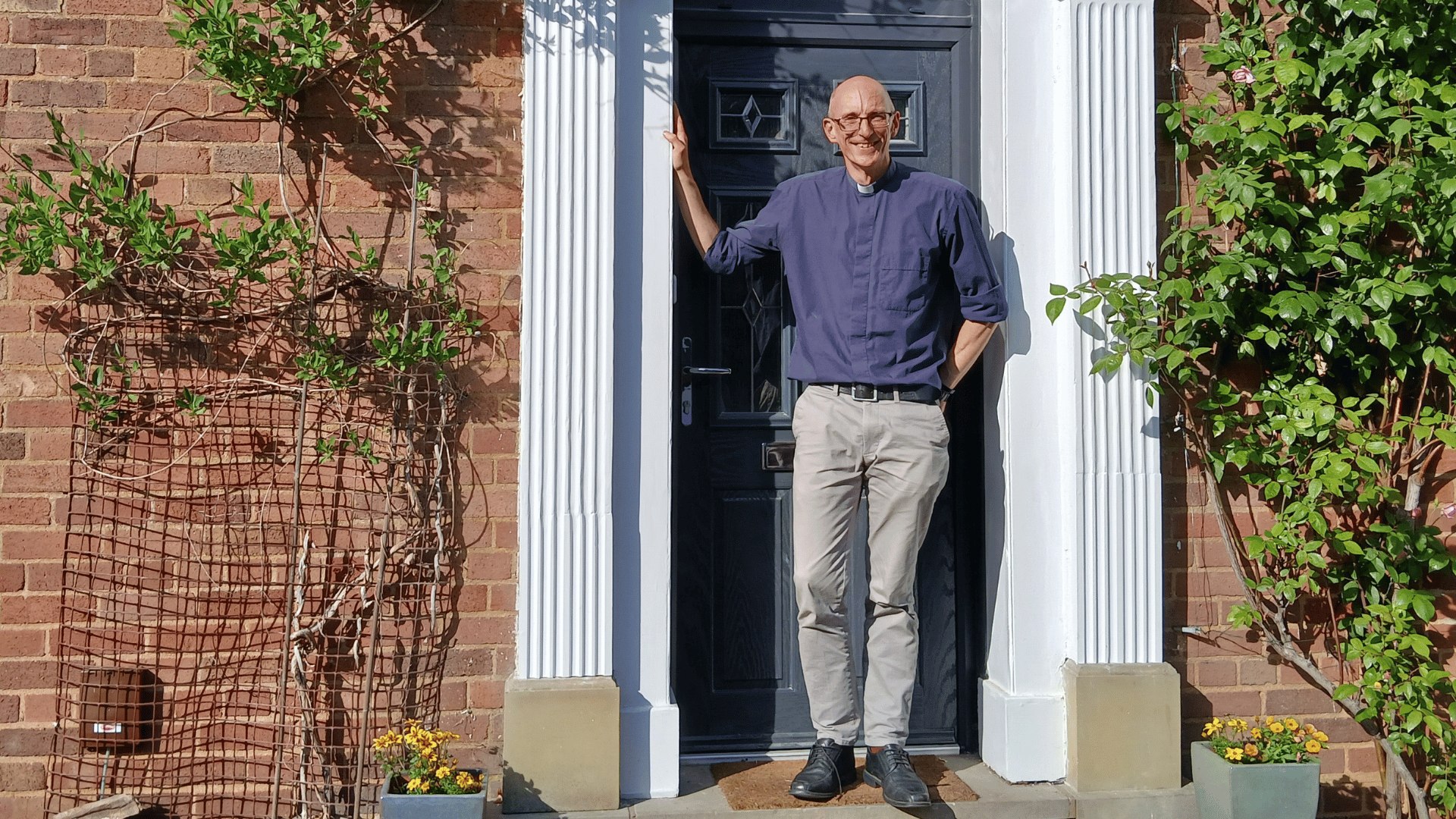
A complete energy retro-fit at his new vicarage in Tupsley was not the first thing Rev'd Andy Dodwell had on his mind when he moved to the parish from his prior role at SPSJ in Hereford. As the work unfolded on the new heat-pump-and-solar system, he began to see it through a missional lens: "It truly fits into the Gospel and the Five Marks of Mission - treasuring creation and tending to the needs of our neighbours. It's pastoral care at a distance for people who live in places where, if left unchecked, climate change will result in drought, famine and war. This is net zero energy that doesn't cost the earth - literally and figuratively!"
The impact of this pilot project will be felt closer to home, too, as the net energy savings from it, and others modelled on it, will be able to offset the carbon footprint from properties that are harder to retro-fit, such as more historic vicarages and churches. The combination of a super-efficient heat pump with solar panels and batteries mean the house is not just carbon neutral but actually contributes energy to the grid. It's effectively a negative carbon footprint. But it was not a quick fix. To make the house as energy efficient as possible required six months of remediation that turned it into a building site: new doors and windows, internal insulation of single-skin brick walls, a new boiler, new radiators, loft insulation, chimneys blocked up, new electric cooker instead of gas, new electric showers, solar panels and hi-tech batteries.
"It has been a lot of work to turn what was a very cold, post-war house with big energy bills into a very warm, energy-efficient one," continues Andy, "The boiler was on its last legs, the double glazing was old and failing. It would have failed its next Energy Performance Certificate (EPC) test anyway. It feels like a different house now. It takes a bit of getting used to the way it works. You can't whack the heat up if you come in on a cold day and want to warm up fast, that's not how it works. It's more of a constant, gentle heat source. But we can see in real time the difference it makes to our energy footprint to turn down the shower by just one notch. It won't work for every property, but as a pilot project, it has given us a set of data points we can use to make a difference across other properties in the diocesan housing stock."
The pilot project was made possible by a grant from the Church of England, under the expert guidance of Diocesan Surveyor, Mike Williams, Housing and DAC Officer, Sophie Mead and Diocesan Mission Enabler for the Environment, Rev'd Stephen Hollinghurst. Mike Williams explained, “This pilot project is part of a Church of England national pilot scheme for every diocese to completely retro-fit a property and learn from it, before funds become available for a wider project across multiple properties.” He continues, “It has helped us understand the priorities and where we can gain the greatest NetZero and cost-saving benefits, in our local context, before the Church rolls this out more widely. Our initial targets will be homes heated by oil. The work needs to address the fabric of the building first – primarily that means insulating walls, roof, windows and doors to make the home as airtight as possible, with ventilation of course. Then we can address the technology, which includes, solar energy, heat pumps and converting oil and gas appliances to electric. Throwing all that tech into an old, draughty building doesn’t work, because the house just won’t be warm. We also learned that it helps to do the work when the house is empty – during an interregnum for example. And while we’re waiting for the next round of central funding, we’re encouraging people to ‘channel-shift’ towards greener options and ‘quick wins’ where that can make a difference, such as electric cookers and green energy tariffs.”
Mike also cautioned against raising expectations that the diocese’s extensive housing stock would all get the ‘Tupsley treatment’ in the short-term: “At the moment we are waiting for the next round of funding from central church. It’s an emerging picture, as the central church and our three-counties Environment team evaluate the findings of the pilot projects.”
Rev’d Andy agrees, "Not every property will need such a drastic retro-fit, but the benefits all add up with each incremental improvement, even down to running appliances on a timer so they can run in the middle of the night when demand is lower, and replacing items as small as a kettle when they need replacing, with ones that have a better energy rating." He's working on the idea of a 'pay it forward fund', a way for diocese properties that benefit from lower bills through energy upgrades to contribute some of those savings to help retro-fit other properties throughout the diocese. "Hopefully this is the first of many!" he says, with an infectious grin.
For more information see the Property pages on our website or email Mike Williams in our Property Team.
-ENDS-